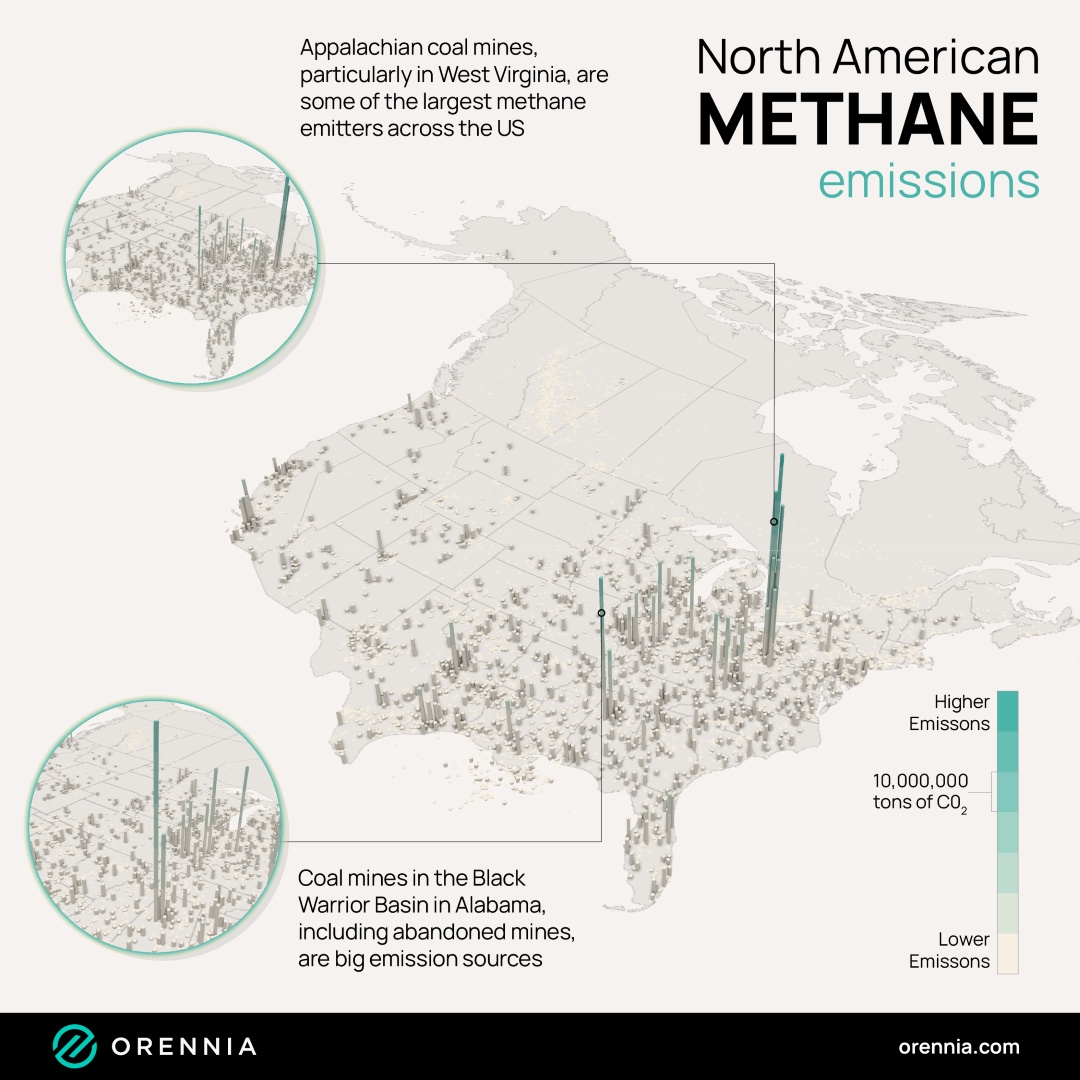
Aaron Foyer
Vice President, Research and Analytics

Vice President, Research and Analytics

Methane poses a critical environmental challenge due to its potent impact on climate change. In both the United States and Canada, key sectors are key contributors for methane emissions, each with its unique regional hotspots.
Coal mining: Methane is released during activities involved with mining coal, both from the coal itself and the surrounding rock strata. Some of the key regions include the Appalachian Basin, which spans states like Pennsylvania, Ohio, and West Virginia.
Oil and gas: The industry is the largest contributor to methane emissions in both countries. Methane leaks can occur at various stages, from extraction to processing and transportation. There are several areas of oil and gas extraction across the countries, including the Permian Basin in Texas and New Mexico, Appalachia in the US northeast and the Western Canada Sedimentary Basin which spans Alberta, British Columbia, and Saskatchewan.
Agriculture: Particularly livestock farming is a significant source of methane, being produced during the digestive processes of ruminant animals and from manure management practices.
Landfills: The anaerobic decomposition of organic waste is a concentrated source of methane emissions. This is particularly true in regions with large populations and waste production.
Both the United States and Canada are implementing measures to address methane emissions across these key sectors. The Environmental Protection Agency (EPA) in the US has regulations targeting methane emissions from the oil and gas industry, while Canada aims to reduce oil and gas sector emissions by 45% by 2025 from 2012 levels.
Improved leak detection and repair (LDAR) practices are crucial for reducing emissions in the oil and gas sector. In agriculture, innovations in methane management and livestock feeding practices are being tested. For landfills, enhanced waste management practices and methane capture technologies for renewable natural gas (RNG) are being implemented.
Data-driven insights delivered to your inbox.